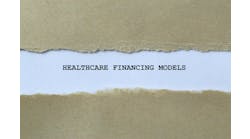Two members of U.S. Congress are asking for public input on a new effort, dubbed “Cures 2.0,” designed to build on the 21st Century Cures Act by modernizing coverage and access to life-savings cures, with a core focus on digital health.
Reps. Fred Upton (R-Mich.) and Diana DeGette (D-Colo.) issued a “call to action” document last week, describing Cures 2.0, legislation that is underway and which builds on the 2016 Cures Act law that’s broadly designed to help advance medical research and foster a new era of medical innovations that may establish new cures for the world’s cruelest diseases.
According to Upton and DeGette, “One area of significant focus for Cures 2.0 is digital health. We believe that digital health technologies hold the promise of modernizing U.S. healthcare in ways that transform how Americans access medical services. Digital technologies have helped to transform other sectors of the U.S. economy in ways that improve access to products and services and decrease their costs without harming quality. It is time for that same transformation to occur in healthcare.”
They added, that “Recognition of digital platforms as sources of medical services combined with reforms to how digital products may be covered and reimbursed for by payers such as Medicare will be critical to realizing this potential.”
The document offers an example of how today, coverage of a medical product approved for sale by the U.S. Food and Drug Administration (FDA) can take years to be covered by health insurance, including Medicare and Medicaid. But looking forward, say Upton and DeGette, “the promise of personalized medicine is real—the science exists. However, the financial implications of moving healthcare coverage from large population medical products to those developed for smaller populations is impeding our efforts.”
Another key focus area, they note, is how to harness data to empower patients and improve their health. For example, as part of the 21st Century Cures Act, lawmakers “challenged FDA to evaluate and utilize real world evidence (RWE). FDA has embraced this challenge by releasing a framework for RWE and offering guidance to product sponsors on how to utilize RWE in submissions. We would like to build on our initial RWE work, both at FDA and across the federal healthcare landscape,” they wrote.
Upton and DeGette are asking for public input on these issues by Dec. 16, and they wrote, “Cures has been and forever will be a process of healthcare reform predicated on input from stakeholders and collaboration as we move them through the legislative process.”

